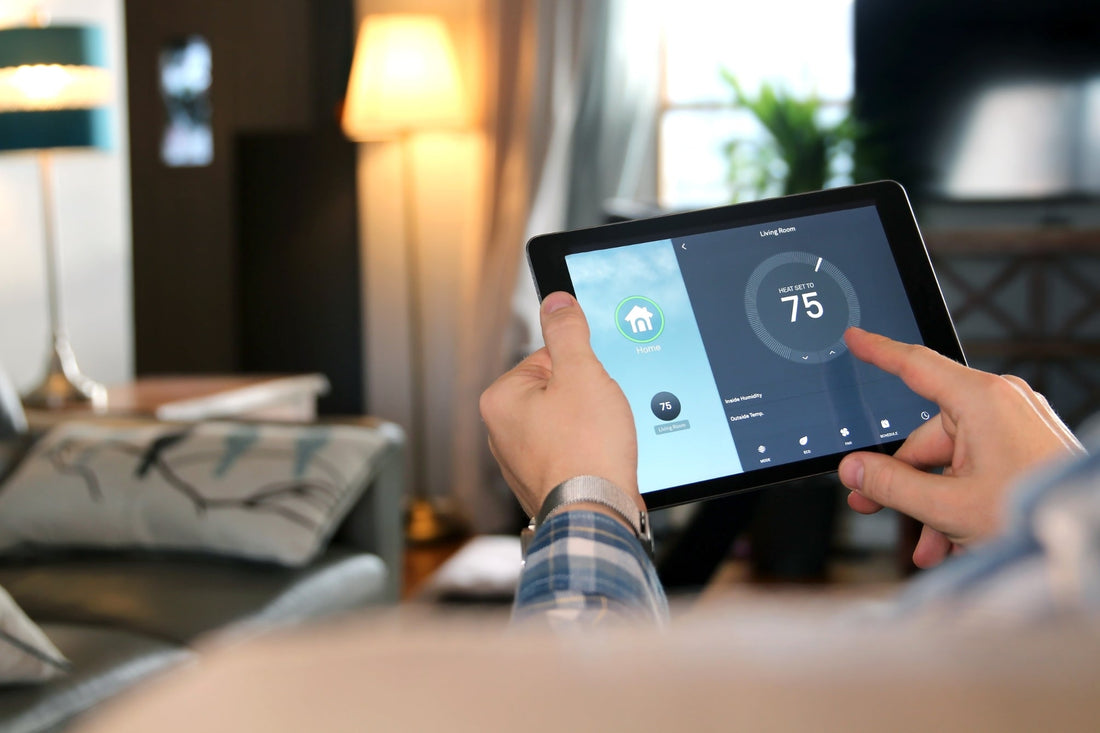
SMART HOME HUB: HOW TO CONNECT DIFFERENT DEVICES EFFICIENTLY AND RELIABLY
Share
 The world of smart homes offers a wealth of possibilities to enhance living comfort, save energy, and improve security. However, with the increasing number of smart devices, things can quickly become confusing, especially when they use different wireless protocols. A Smart Home Hub brings order and enables the efficient and reliable connection of various smart home devices. In this article, we explain what a smart home hub is, how it works, and which models are particularly suitable.
The world of smart homes offers a wealth of possibilities to enhance living comfort, save energy, and improve security. However, with the increasing number of smart devices, things can quickly become confusing, especially when they use different wireless protocols. A Smart Home Hub brings order and enables the efficient and reliable connection of various smart home devices. In this article, we explain what a smart home hub is, how it works, and which models are particularly suitable.
What is a Smart Home Hub?
A Smart Home Hub is a central control unit that connects various smart home devices and coordinates their communication. Many smart devices operate with different wireless protocols such as Wi-Fi, Zigbee, Z-Wave, or Bluetooth. Without a unified interface, they cannot directly interact with each other. This is where the smart home hub comes into play: it acts as a central node and ensures that all connected devices work together efficiently.
Why is a Smart Home Hub important?
Without a central hub, each smart home device requires its own control solution, usually in the form of an app. This can quickly become overwhelming. A hub offers the following advantages:
- Centralized control: All devices can be managed via a single platform.
- Automations: Scenarios and routines can be created across devices, e.g., “Turn on the light when the door is opened.”
- Extended compatibility: By supporting multiple wireless standards, a hub enables interaction between different brands and device types.
- Increased security: Many hubs offer encrypted communication, protecting against cyberattacks.
What types of Smart Home Hubs are there?
Manufacturer-specific hubs
Some hubs are specifically optimized for devices from a particular manufacturer. Examples include:
- Philips Hue Bridge: Enables the control of Philips Hue lights and lamps, including color changes, scene control, and automations. It also offers higher response speed and reliability than direct Zigbee control.
- Homematic IP Central Unit CCU3: Controls Homematic IP devices for heating, security, and lighting systems. It allows complex automations, local control without cloud dependency, and deeper customization for individual needs.
Universal hubs
In contrast, universal hubs work independently of manufacturers and can integrate devices from different providers and wireless standards. This makes smart home systems more flexible and versatile, as there is no commitment to a single manufacturer.
- Homey Pro: A powerful hub supporting Zigbee, Z-Wave, Wi-Fi, infrared, and Bluetooth. Allows control of many devices via a central app and offers simple automations using “Flows.”
- Samsung SmartThings Hub: Compatible with Zigbee and Z-Wave as well as numerous third-party services. Provides easy cloud-based control via the SmartThings app.
- Hubitat Elevation: A local smart home hub focused on privacy and automation without relying on the cloud. Ideal for advanced users with custom control requirements.
Matter: The future of smart home connectivity
A new standard that aims to revolutionize compatibility between different smart home devices is Matter. This cross-manufacturer, open-source protocol is supported by companies such as Apple, Google, Amazon, and Samsung. Devices with Matter support can communicate with each other without manufacturer-specific hubs or bridges, improving compatibility between different brands and reducing market fragmentation. Many modern smart home hubs rely on USB-C for stable power supply and fast data transmission.
Questions and answers about Smart Home Hubs
What does a Smart Home Hub do?
A Smart Home Hub connects smart devices using different protocols and brands, enables centralized control, and supports automations.
How does a Smart Home Hub work?
The hub receives signals from smart home devices, converts them into a compatible format if necessary, and forwards them. This allows devices using different protocols to communicate with each other.
Which Smart Home Hub is the best?
That depends on individual requirements:
- Homey Pro: Ideal for complex multi-protocol environments.
- Samsung SmartThings: A good choice for beginners with broad device support.
- Hubitat Elevation: The best option for users who value local processing and privacy.
When choosing the best smart home hub, both software and hardware connections play a role. Some models, like the Homey Pro or Hubitat Elevation, offer USB-C ports for expansion or data transmission. To ensure the best possible connection, it is advisable to use high-quality USB-C cables.
Conclusion
A Smart Home Hub is the ideal solution for efficiently and reliably connecting various smart devices. While manufacturer-specific hubs are optimal for a particular product line, universal hubs offer maximum flexibility. The emerging Matter standard will further improve interoperability and, in the long term, reduce the need for individual hubs. Anyone investing in a smart home today should not only consider current compatibility but also future-proof standards.
